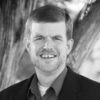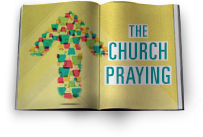Looking to the Past for Lessons about Prayer
We often think of the Reformation as inspired by the layman’s access to the vernacular Bible, and the doctrine of salvation by grace alone. Those were preeminent concerns, of course, but the Reformers and their successors also fought to return the practice of prayer to a firmly biblical basis.
PURITANS AND PRAYER
A host of issues related to prayer concerned Reformed Protestants. They wanted to move away from liturgical prayers, like those in the Book of Common Prayer, and toward non-scripted, heartfelt ones. They also wanted to remove all the Catholic vestiges from prayer, such as the invocation of saints, a practice that some Church of England ministers still endorsed in the early 1600s.
Strange as it might seem, the Reformers also wanted to reduce the percentage of prayer time in the Sunday gathering, especially the liturgical readings. In its place they increased the amount of time for exegetical teaching and preaching. This was a delicate balance. Puritans in particular sought to put the Word at the center of church services, while also rekindling extemporaneous public prayer.
Whatever balance and order of service they instituted, all Puritan church gatherings had one thing in common: they were long. Churches typically met twice on Sundays, in addition to weekday meetings and home-based fellowships and prayer gatherings. It wasn’t unusual for the Sunday morning meeting to last three hours, or even more.
The meeting would typically open with a pastoral prayer that might last around 15 minutes. Then they would read passages of Scripture, which the pastor often explicated. The congregation would sing psalms (non-psalm hymns came in slowly during the eighteenth century), and only then would the church hear a sermon . . . that might last for an hour or two. Finally the pastor would say a prayer or benediction. On occasional Sundays, the church would observe the Lord’s Supper or baptisms (most Puritans practiced paedobaptism).
SERIOUS COMMITMENT
These folks were serious, one might say! True enough, but we also have to imagine a world in which Sunday gatherings were a welcome break for most regular folks in attendance. Most congregants worked on farms the other six days a week. Not only did Puritans have a high view of the Sabbath, but early New England governments cracked down on Sabbath-breakers. Also, their world had few distractions competing with church attendance: no sports leagues, no NFL, virtually no restaurants. I suspect that for most people, especially those serious about their faith, a three-hour service with fervent prayer and faithful preaching was a delight.
Historians of religion find it strangely difficult to discover what non-liturgical services throughout the history of Christianity actually looked like in practice. Beyond a general framework outlined above, and the text of surviving sermons, details of the services often went unrecorded. So while we have a general idea that prayer was a regular part of Puritan meetings, and prayers went longer than in most evangelical churches today, we’re left to guess at the ways in which pastors and elders prayed.
EVIDENCE IN EDWARDS
One surprising trove of evidence comes from a collection of prayer “bids” that survived in the papers of the great New England pastor-theologian Jonathan Edwards. As historian Stephen Stein has shown, congregants would give small slips of paper to Edwards during the week, and he would refer to them during his congregational prayers the next Sunday. Many of the requests would sound familiar to us today, as they commonly dealt with sickness, injury, and death. But the prayer bids also showed an internalizing of Reformed beliefs about God’s sovereign will, and their dependence upon him.
Typical was the request of one Benjamin Bartlet, for his youngest child who was “Daingerously Sick.” He asked that the child would be restored to health, if it be God’s will. But even if it was not, Bartlet prayed he and the child be “fitted for God’s holy will and pleasure.” Edwards presumably led the church in prayer for the child along these lines.
GREAT AWAKENING PRAYERS
Over the half-century before the Great Awakening of the 1730s and ‘40s, however, the prayers of New Englanders seem to have undergone an important shift. Prayers for healing and other everyday cares no doubt continued. But other pastoral prayers shifted from a focus on moral reform to revival.
In the early 1700s, there was a growing sense that efforts to change the society’s declining morality had failed. Puritan pastors long lamented New England’s decline from its founding generation’s spiritual mission. But scolding and trying harder did not effect change.
In the 1720s and ‘30s, pastors began to emphasize that reform was hopeless without revival—and revival depended not on more human effort, but on an outpouring of God the Holy Spirit. God did not need the church to pray in order to send revival, but fervent prayer for God’s rescuing power was often the first sign of revival. These early evangelical pastors often prayed in accord with Isaiah 44:3, “I will pour water upon him that is thirsty, and floods upon the dry ground: I will pour my spirit upon thy seed, and my blessing upon thine offspring.” This shift toward prayer for the outpouring of the Spirit was a critical development that prepared the way for the Great Awakening.
WHAT WE SHOULD LEARN FROM THEM
What we know about prayer in Puritan and early evangelical churches should instruct us today. Although people in early America enjoyed an excellent sermon and beautiful singing, church meetings were hardly the orchestrated performances many evangelical churches put on today. In particular, extemporaneous prayer remained a vital, and often lengthy, aspect of those early American meetings. Pastors and elders responded to the prayer requests of their people, but they also guided prayer so that petitions took a wider view than just the congregation’s physical needs.
With all due regard to churches’ individual circumstances, it’s hard to justify the lack of congregational prayer in many of today’s churches, or the relegation of prayer to an obligatory sidelight. People need pastoral and congregational prayer for the burdens they bring into church. And whatever a church’s brilliant programming, the power of God alone will fulfill a church’s mission and foster revival. No element of worship better signals Christians’ dependence upon God than prayer. Pastors who put prayer front-and-center each week are demonstrating that dependence in a practical, biblical way.









